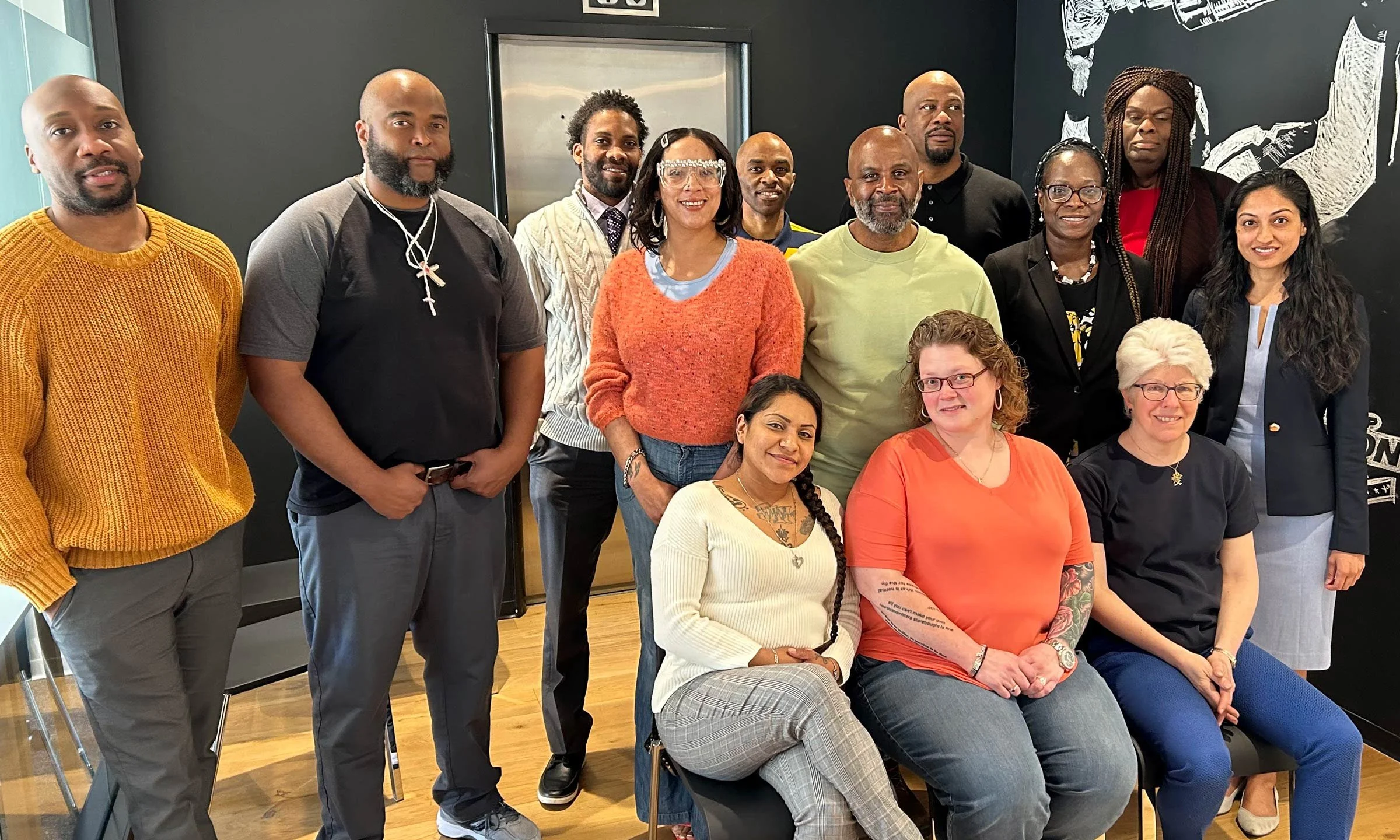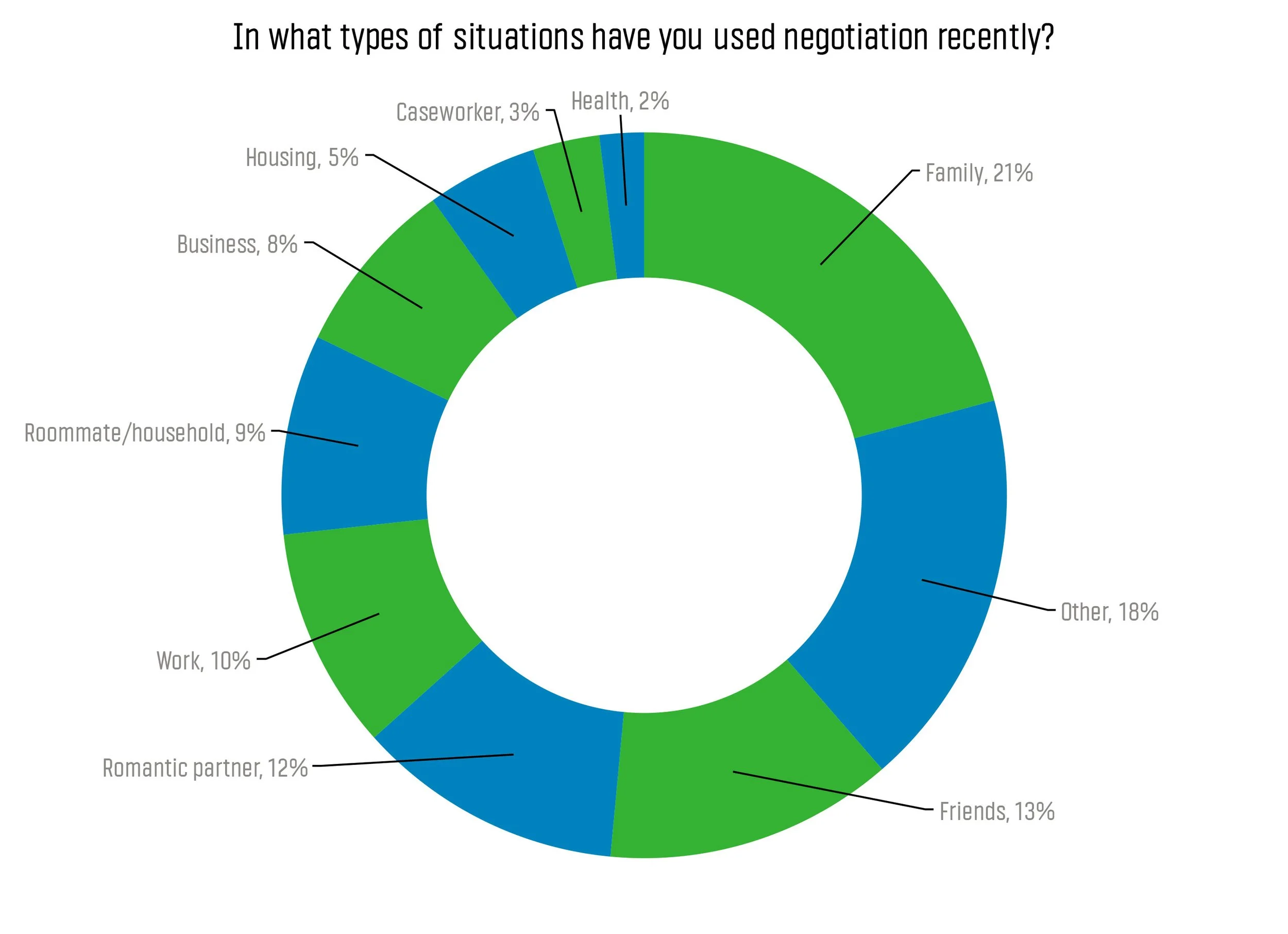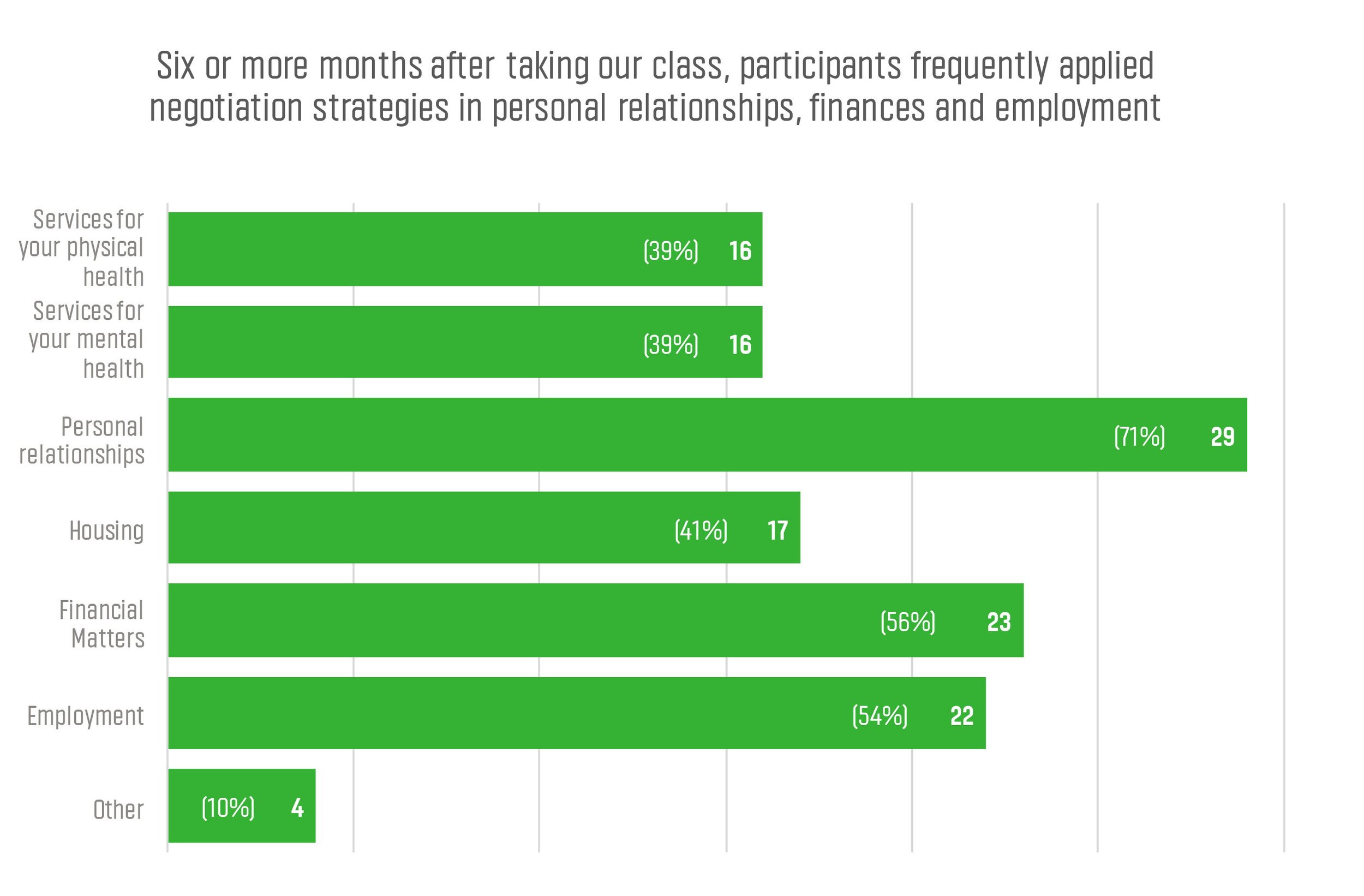
Measuring Our Impact
Negotiation Works and our dedicated data analysis team regularly collect information and feedback about the classes we teach through surveys and follow up interviews and then analyze and report on what we’ve found. This data not only explains what we do and what our participants retain but also helps us adapt the coursework to better serve our students.
The following offers an overview of our research methodology. To help us understand the areas in which participants find negotiation and self-advocacy most useful, we ask our class members each week to share recent situations in which they used negotiation strategies. We also assess whether over the duration of the class, participants become more comfortable and confident in using negotiation strategies to manage disputes, rather than avoiding conflicts altogether or escalating them. Additionally, to evaluate whether taking part in our classes results in people modifying their “go-to” approach when facing conflict situations, we ask participants, both before and after the course, to describe how they would deal with two difficult situations, one involving a landlord-tenant dispute and another involving a family conflict. To assess long-term impact, we reach out to participants six months or more after they complete the course to explore how they have used negotiation strategies over time to accomplish their financial, employment, family, health, and housing goals.
Approximately every six months, our volunteer data team, which includes data and statistics experts working full-time in government, private sector, and non-profit settings, takes a snapshot view of this evaluation data to assist us in analyzing our impact. We convert these insights into continuous improvement for our curriculum to be most useful for participants, programs, and communities. More broadly, as we collect more data, we seek to determine how participants’ use of negotiation strategies leads to job retention, eviction prevention, adherence to probation terms, family stability, and financial mobility.

Our Most Recent Data Results
In our most recent analysis of the 175 participants who were in our classes between January and July 2024, of those reporting using negotiation strategies while taking the course, 21% responded that they had used the skills with family—the highest percentage of any situation mentioned. Others report using negotiation skills with friends, romantic partners, roommates, and at work.
Our data team captured the frequency that our participants used different words in responding to the question, “Think about the negotiation skills and strategies you have been taught in this course. Which ones have been the most useful?”
Key concepts such as BATNA (Best Alternative To a Negotiated Agreement, or a “Plan B”), interests, communication and listening were all used repeatedly by survey respondents when talking about the course and its impact on their lives.
In our most recent long-term survey report, nearly eight out of ten participants who completed the survey credit negotiation training with helping them achieve positive changes in their lives – and seven out of ten cite negotiation skills as important in managing personal relationships as well as a variety of other issues, especially related to their own finances and employment. Through our long term data collection project, we reach out to past participants who are at least six months out from taking our course to assess the long-term impact of negotiation and self-advocacy skills training. This most recent analysis was based on forty-one participants who look part in our long term survey between June 2022 and August 2024.
IMPACT STORY:
Danielle, a participant in our winter 2025 course at Together We Bake, was excited to receive a job interview at Giant Foods. Going into the interview, she was concerned about how to raise her short-term limited availability to work: because she was in the 10-week Together We Bake program which met on Tuesdays through Thursdays, she wouldn’t be available to work at Giant on those days. She decided that the best negotiation approach was to be direct and assertive, explaining her schedule constraints to the manager. “It all worked out,” she said, “where I will work for Giant on Fridays, Saturdays, Sundays, and Mondays and can still take part in and finish the Together We Bake program.”




